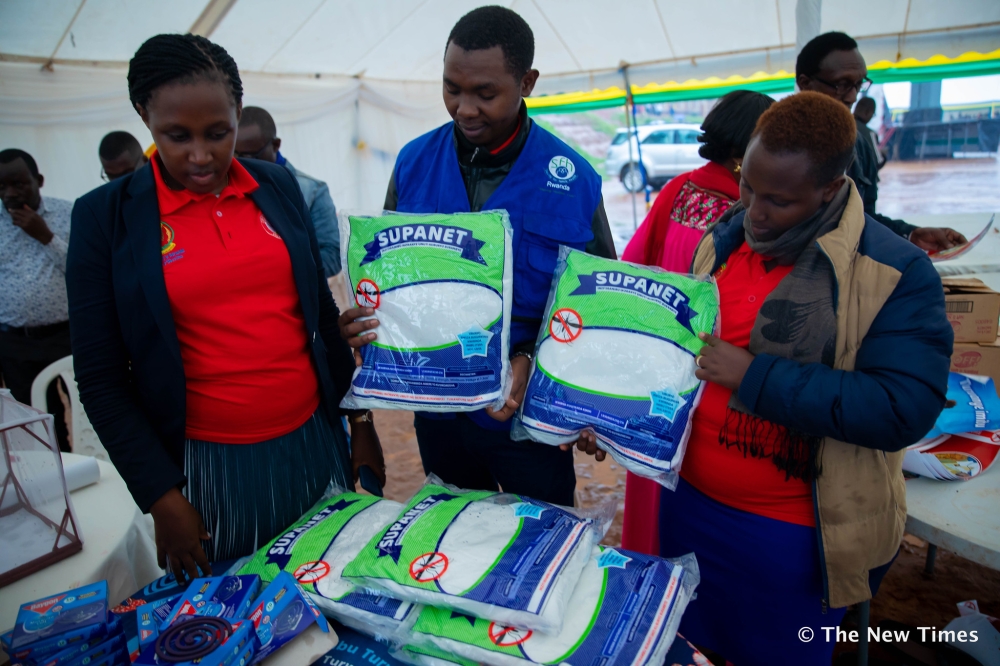

Rwanda has launched a new, community-based malaria control strategy in response to a rise in infections.
Some 87,000 cases reported in March alone and more 800,000 recorded nationwide in 2024, according to officials.
ALSO READ: What’s driving malaria resurgence in Rwanda?
The approach, known as reactive case detection, is being implemented by the Rwanda Biomedical Center (RBC) in sectors with the highest malaria burden. It involves actively testing members of a household after one person is diagnosed with the disease to identify and treat others who may be infected but not yet symptomatic.
"When someone tests positive for malaria at the community or health facility level, we follow up by visiting their home and testing everyone they live with,” said Dr Aimable Mbituyumuremyi, RBC’s Division Manager for Malaria and Neglected Tropical Diseases.
The goal is to detect infections early and break the chain of transmission within families, he added.
ALSO READ: Rwanda to introduce new drugs to combat malaria resistance
The strategy is currently being rolled out in 15 high-risk sectors in the City of Kigali. Dr Mbituyumuremyi noted that the new strategy is a focused intervention that, depending on the data, may expand to other high-burden areas beyond Kigali.
Nationwide, half the districts accounted for 85 per cent of all malaria cases recorded in March. Gasabo District recorded more than 13,000 malaria cases, the highest of any district. It’s followed by Gisagara ,11,000 cases and Kicukiro 9,000.
Rwanda had seen a significant decline in malaria cases, from 4.8 million in 2016/2017 to 620,000 cases in 2023/2024 fiscal years. However, health officials have been alerted by just over 802,000 cases recorded in 2024.
The official said that the rise in malaria cases is caused by several factors, including changes in mosquito behavior, with more bites occurring outdoors, resistance to insecticides used in bed nets and indoor spraying. Other factors include increased mosquito breeding grounds near rice fields, mining sites, and other areas with stagnant water.
Another challenge is growing resistance to standard malaria treatments, particularly Artemether-Lumefantrine (Coartem). In January, RBC introduced two additional treatment options Dihydroartemisinin-piperaquine (DHAP) and artesunate-pyronaridine (ASPY).
"These new medications started being used in January. They are not intended to replace Coartem but to be used when the first-line treatment fails,” said Dr Mbituyumuremyi.
He noted that patients who do not respond to Coartem within three days are switched to one of the new drugs. While it’s too early to assess long-term outcomes, clinicians are already reporting improved recovery in such cases.
In addition to testing and treatment, the new strategy highlights community education on malaria prevention. Health workers visiting households share information on the importance of early diagnosis, use of bed nets, and reducing breeding sites around the home.
The Ministry of Health is also working to enhance data collection and monitoring to inform future interventions and track progress in real time.
"With the combination of household-level testing, alternative treatments, and public awareness, we aim to reverse the upward trend in malaria cases. It’s a vital step in protecting the most vulnerable and strengthening our national response,” Dr Mbituyumuremyi said.
Rwandans can prevent malaria by consistently using insecticide-treated bed nets, wearing protective clothing at night, and applying mosquito repellents to reduce exposure to mosquito bites, especially as mosquitoes increasingly bite outdoors.
It’s also crucial to seek early diagnosis and complete prescribed anti-malaria treatments as directed by healthcare providers, avoid self-medication, eliminate mosquito breeding sites by draining stagnant water around homes, rice fields, dams, and mining sites, and participate in government-led interventions like indoor residual spraying in high-risk districts.
Staying informed and involved in awareness and prevention campaigns will also help reduce malaria cases and support the government target to eradicate malaria by 2030, the official said.


